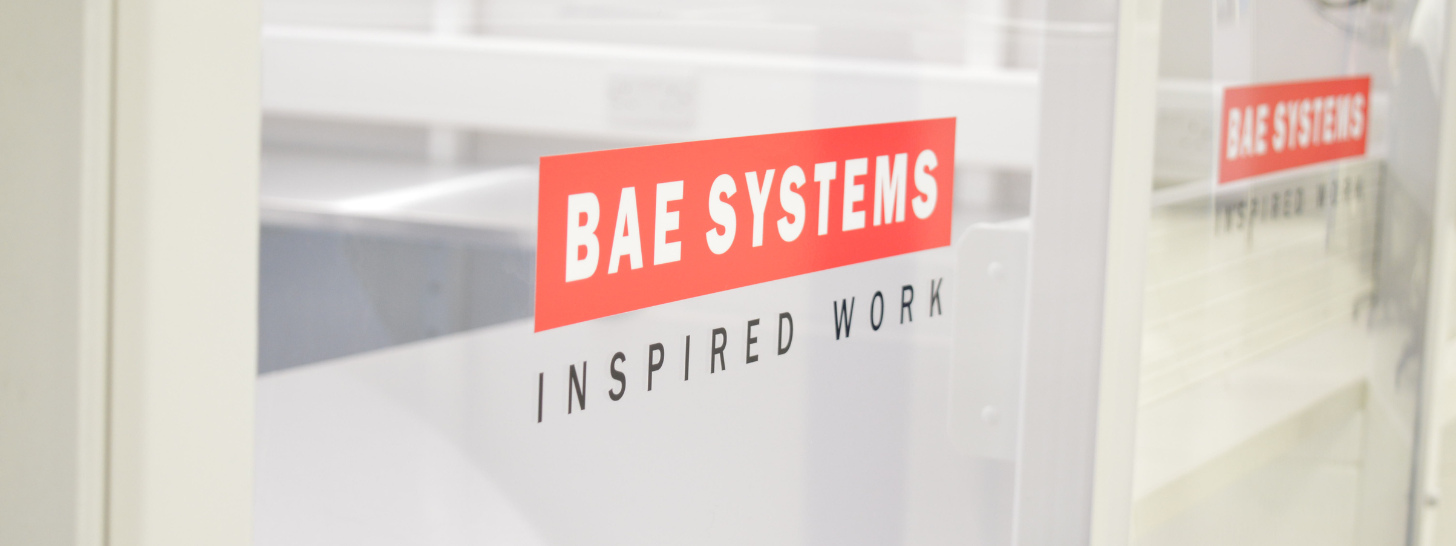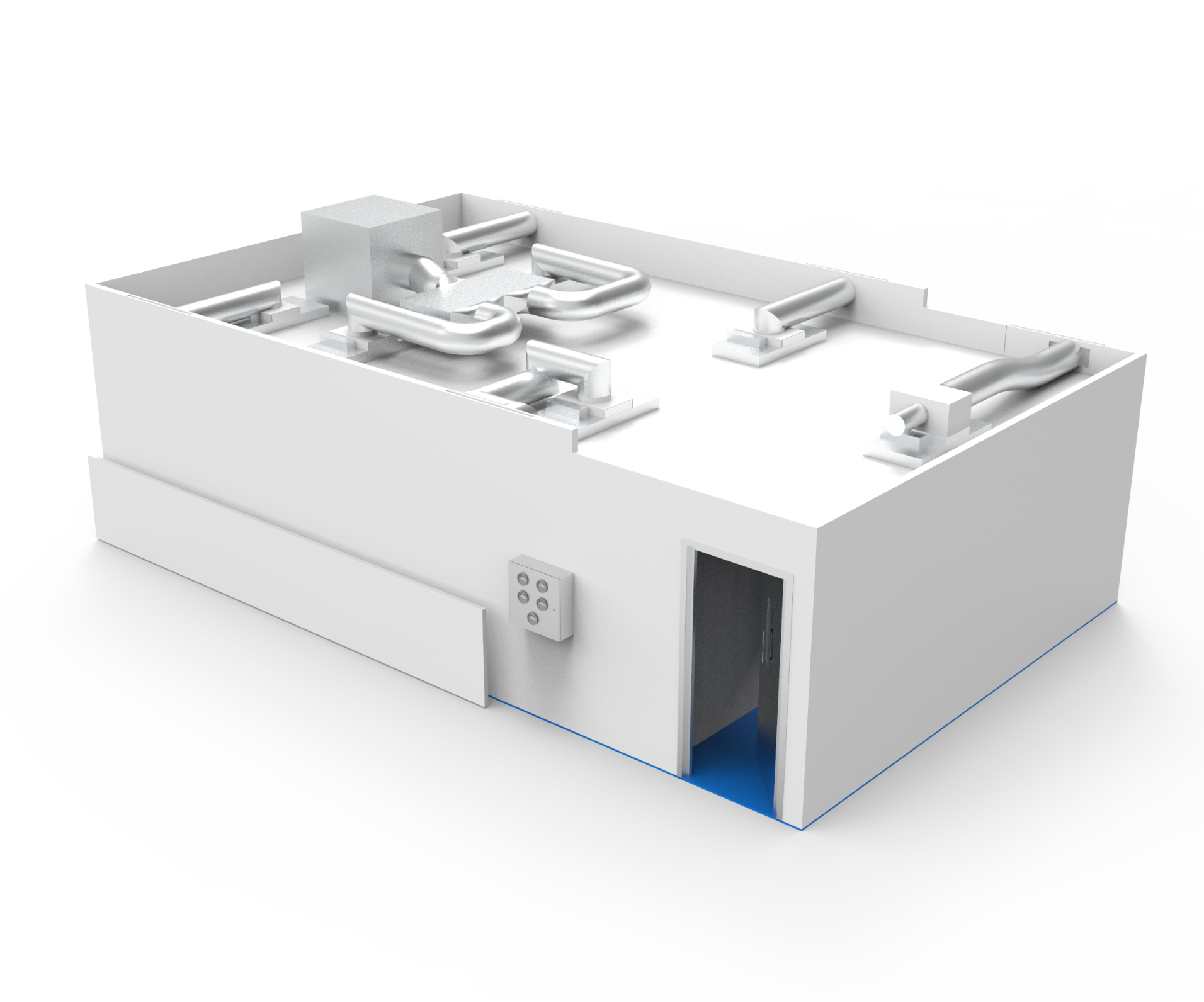What is a Cleanroom?
A cleanroom is defined as ‘a room within which the number concentration of airborne particles is controlled and classified, and which is designed, constructed and operated in a manner to control the introduction, generation and retention of particles inside the room’.
Most controlled environments protect the production of products like electronic devices, pharmaceuticals, and medical equipment, and cleanrooms are classified into different classes depending on the number of particles allowed in the air per cubic metre. They also control variables like temperature, airflow, and humidity.

How do cleanrooms work?
Cleanrooms operate by removing pollutants, particles, and contaminants from external air. This process broadly involves the following steps:

Air Filtration

Air Introduction

Positive Pressure

Air Recirculation

Temperature &
Humidity Control

Cleanroom-Compatible Equipment
Who needs a cleanroom?
You may need a cleanroom for a wide variety of reasons. As a rule, if you’re manufacturing something that is easily affected by contaminants, particles in the air, temperature or humidity, you’ll likely need a cleanroom. If you’re unsure or are looking for more guidance, be sure to contact our expert team, and we’ll be happy to discuss your requirements and objectives.
Here are just some of the common sectors that regularly use cleanrooms:

Semiconductor and Battery Production
Cleanrooms are vital in various electronics and semiconductor applications where precision, cleanliness, and a controlled environment are essential.

Life Sciences and Pharmaceutical
Whether your project is biotech, laboratory-based or a large-scale drug manufacturing facility, Angstrom Technology have the knowledge and experience to support a regulatory-compliant project.

Aerospace
Aerospace cleanroom requirements can vary based on the specific application and industry standards. We design our aerospace cleanrooms to minimise contamination and maintain the necessary conditions for the production, assembly, and testing of components and systems critical to aerospace missions.

Medical and Healthcare
Medical & healthcare cleanrooms are vital and valuable investments to businesses pursuing medical research or creating and preparing compounds and devices to improve health and save lives.

Injection Moulding and Plastics
Cleanrooms are commonly used in the manufacturing of medical devices made from plastics. These devices, such as surgical instruments, implants, catheters, and drug delivery systems, often require a sterile and controlled environment to prevent contamination and maintain product integrity.

Medical Cannabis
Angstrom Technology can support the medical cannabis industry by designing and building ISO and GMP cleanrooms for the production of cannabis-derived products, including CBD extraction and oil production and medicinal cannibas cultivation, collection and processing into an active pharmaceutical ingredient or medicinal product.
Why are cleanrooms so important?
Cleanrooms are critical across many industries because they provide a controlled environment that minimises the presence of airborne particles, contaminants, and pollutants. Here are just some of the reasons why cleanrooms are essential:
Ensuring Product Quality and Safety: In industries such as pharmaceuticals, biotechnology, and medical devices, even the smallest contamination can compromise product quality and safety. Cleanrooms maintain stringent cleanliness standards, ensuring that products are free from contaminants and safe for use.
Compliance with Regulatory Standards: Many industries are subject to strict regulatory requirements. Cleanrooms help companies comply with these regulations by providing an environment that meets the necessary cleanliness and contamination control standards.
Enhancing Research and Development: In research and development, especially in fields like nanotechnology and advanced materials, cleanrooms are crucial for preventing contamination that could skew experimental results or hinder the development of new technologies.
Supporting Innovation: Cleanrooms enable the development and production of cutting-edge technologies and innovative products. By providing a controlled environment, they allow for the precise manufacturing conditions needed to create advanced materials and components.
Ensuring Patient Safety in Healthcare: In healthcare settings, such as hospitals and laboratories, cleanrooms play a critical role in preventing infections and ensuring the safety of patients. They are used for sterile compounding, surgical procedures, and the preparation of pharmaceuticals.
Enhancing Competitive Advantage: Companies that utilise cleanrooms can achieve higher standards of quality and safety, which can provide a competitive advantage in the marketplace. This can lead to increased customer trust, better regulatory compliance, and a stronger reputation.
In summary, cleanrooms are important because they ensure product quality and safety, comply with regulatory standards, protect sensitive processes, enhance research and development, improve reliability and longevity, support innovation, ensure patient safety, facilitate contamination control, and enhance competitive advantage. These controlled environments are indispensable for maintaining the high standards required in various advanced industries.


READY TO DISCUSS YOUR NEXT PROJECT?
Our design and build specialists have experience working with customers in all kinds of industries and on every scale, achieving great results time and time again. We’d love to work with you as well!
CONTACT US